Search Images
Browse Content (p. 1327)
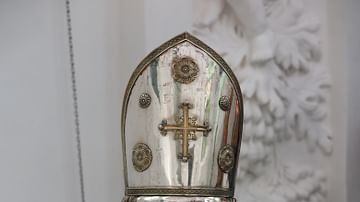
Image
Relic of St. Cyprian
Cyprian (Latin: Thaschus Cæcilius Cyprianus; c. 200 – September 14, 258 CE) was bishop of Carthage and a notable Early Christian writer, many of whose Latin works are extant.
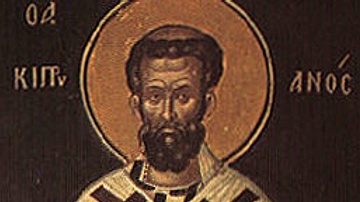
Image
Icon of St. Cyprian
Cyprian (Latin: Thaschus Cæcilius Cyprianus; c. 200 – September 14, 258 CE) was bishop of Carthage and a notable Early Christian writer, many of whose Latin works are extant.
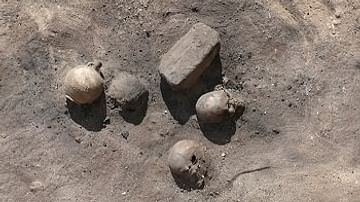
Image
Victims of Cyprian plague
Archaeologists in Thebes have discovered a burial for victims of the 3rd-century CE Cyprian Plague.
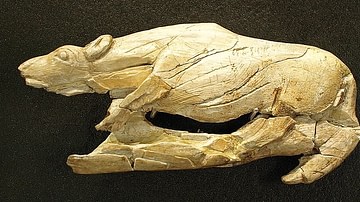
Image
Creeping Hyena Spear Thrower of La Madeleine
This 'creeping hyena' forms the highly decorated butt-end of an Upper Paleolithic spear thrower (also known as atlatl). The hook used to propel the spear is clearly visible. It was found at La Madeleine rock shelter in Tursac, Dordogne, France...
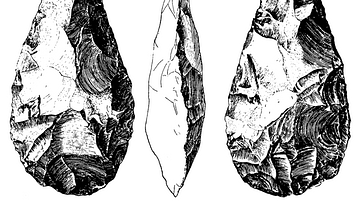
Image
Acheulean Handaxe
Drawing of a lanceolate biface or handaxe from the Acheulean stone tool culture (ca. 1,7 million years ago-ca. 250,000 years ago), found at San Isidro, Madrid, Spain.
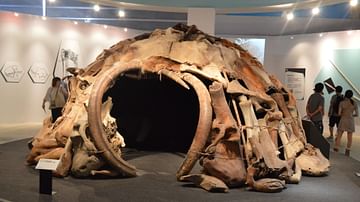
Image
Replica of a Mammoth-bone Structure
Replica of a mammoth-bone structure, shown at the "Frozon Woolly Mammoth Yuka Exhibit" in Yokoyama, Japan in Summer 2013. Upper Palaeolithic man is known to have created dwellings using mammoth bones.

Image
Megaloceros (Giant Elk) Skeleton
Megaloceros giganteus (generally known as Irish- or Giant Elk) skeleton on display at the National Museum of Natural History, Washington, D.C. Megaloceros is an extinct genus of deer that lived from the Late Pliocene to the Late Pleistocene...
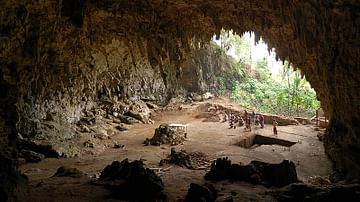
Image
Liang Bua Cave
Liang Bua Cave is situated on the island of Flores, Indonesia. Here, in 2003, the remains of the extinct species Homo floresiensis (nicknamed 'hobbit') were discovered.

Image
Woolly Mammoths
Artist's vision of woolly mammoths (Mammuthus primigenius) in a late Pleistocene landscape in northern Spain. Mammoths were hunted by prehistoric humans.
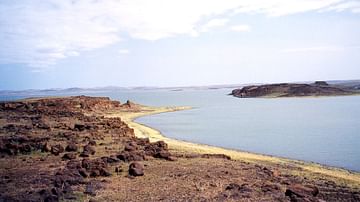
Image
Lake Turkana, Kenya
South island of Lake Turkana in Kenya, an area in which some of the earliest hominin (i.e. human species and their immediate ancestors) fossils and tools have been found.